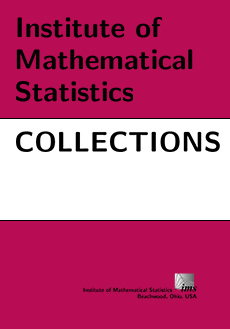Abstract
The article touches on two themes in which Larry Brown has been interested, namely foundations, and mathematical analysis of Bayesian decision theory.
In the section on foundations, a new formulation of the problem of testing is given, and is theoretically explored. The formulation strikes a balance between false discoveries and missed discoveries. Basic higher order asymptotic theory for the α level that this formulation would imply is then worked out. Accuracy is investigated and examples are given.
In the section on Bayesian decision theory, first, the Brown identities are connected to a set of inequalities of elliptic boundary value problems. It is shown by four specific results that sometimes a result in that field can lead to new results in Bayesian decision theory, and sometimes a result in decision theory can give surprisingly useful information about a problem in that field. For instance, Brown identities can provide amazingly good estimates of best constants in the Nash inequalities over Sobolev spaces.
The article ends with a result on the modern theory of high dimensional Gaussian mean estimation. By means of a triangulation of the Brown identity, the Rayleigh-Ritz variational formula of boundary value problems, and the famous Donsker-Varadhan result connecting the Rayleigh-Ritz formula to the absorption time of a Brownian motion into the boundary of a smooth bounded open domain, we show that the minimax risk of estimating the Gaussian mean can be approximated by chasing a Brownian motion to the boundary of the parameter space. This link should be tested by simulation.
Information
Digital Object Identifier: 10.1214/10-IMSCOLL601


